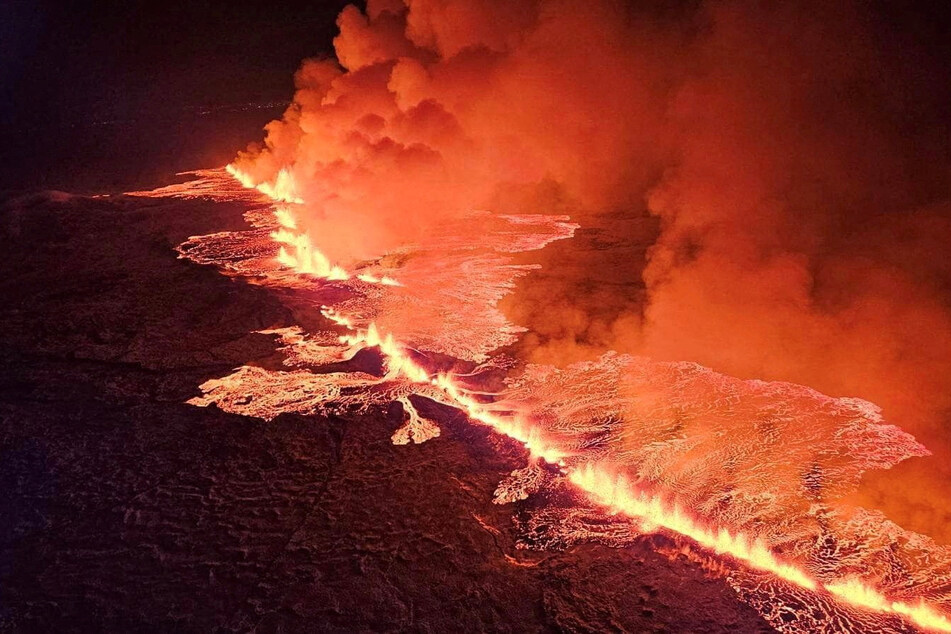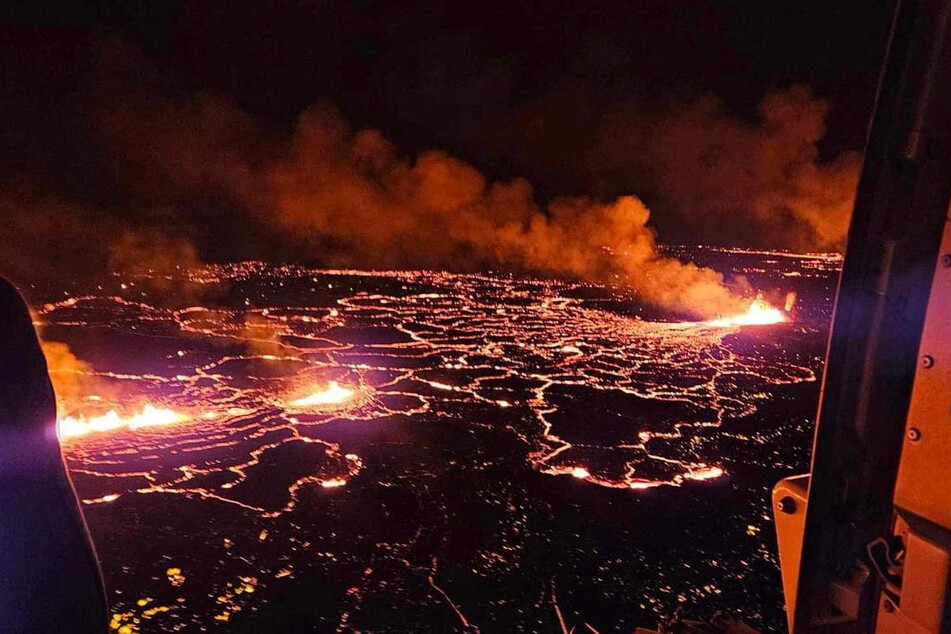Volcano in Iceland erupts spectacularly, spewing rivers of lava
Grindavik, Iceland - A volcano in Iceland was still erupting Tuesday morning, hours after geysers of molten lava shot into the night sky following weeks of intense seismic activity southwest of the capital Reykjavík.

The eruption on the Reykjanes peninsula began Monday at around 10:17 PM local time (5:17 PM ET) after an earthquake swarm, the Icelandic Meteorological Office said, referring to a series of small shakes.
Live-streamed footage of the eruption showed glowing orange jets of lava spewing from a gash in the ground, surrounded by billowing clouds of red smoke.
"We hope for the best, but it is clear this is a considerable eruption," Prime Minister Katrin Jakobsdottir wrote on Facebook.
For weeks, the Nordic country had been anticipating an eruption on the peninsula southwest of the capital after intense earthquake activity, which prompted authorities to evacuate thousands of people and close the Blue Lagoon geothermal spa famed for its turquoise waters.
The meteorological office estimated that the volcano had opened a fissure about 2.5 miles long, with the southern end less than two miles away from the fishing town of Grindavik.
By 3:00 AM, the meteorological office said the intensity of the eruption had stabilized and "the activity is decreasing," although was unable to estimate how long it would last.
"We now wait to see what the forces of nature have in store," President Gudni Thorlacius Johannesson wrote on X, formerly Twitter. He added that protecting lives and infrastructure was the priority.
Icelandic authorities warn people to stay away from volcano

Vidir Reynisson, head of the Department of Civil Protection, urged people to stay away from the area, telling a local TV network: "This is no tourist eruption."
Fears that it could cause havoc to air travel after another Icelandic eruption in 2010 grounded thousands of flights across Europe and North America has so far failed to materialize.
Reykjavík's international airport remained open. Operator ISAVIA said: "For the time being, no disruptions to arrivals or departures at Keflavik airport."
Since October, thousands of earthquakes had been detected on the Reykjanes peninsula, a possible precursor to an impending volcanic eruption.
Roughly 4,000 people were evacuated from Grindavik, a fishing port around 25 miles from Reykjavík, on November 11 after scientists determined that a tunnel of magma was shifting beneath them.
Residents told AFP the series of small earthquakes – sometimes hundreds per day – had damaged roads and buildings.
Since then, they have only been allowed to visit their homes during certain daylight hours.
Authorities have organized occasional trips into the village, escorting those with homes in the most perilous parts as they rescued everything from cherished pets to photo albums, furniture, and clothing.
Could Iceland see a new era of volcanic activity?
Volcanic eruptions are not uncommon in Iceland, which is home to 33 active volcano systems, the highest number in Europe. But the Reykjanes peninsula had not experienced an eruption for eight centuries until 2021.
Since then, three have struck, in 2021, 2022 and earlier this year – all in remote, uninhabited areas.
Volcanologists say this could be the start of a new era of activity in the region.
In 2010, the eruption of Iceland's long-dormant Eyjafjallajökull volcano shot huge amounts of ash into the atmosphere. That explosive eruption was not fatal, but forced the cancellation of around 100,000 flights and left more than 10 million travelers stranded.
Cover photo: via REUTERS